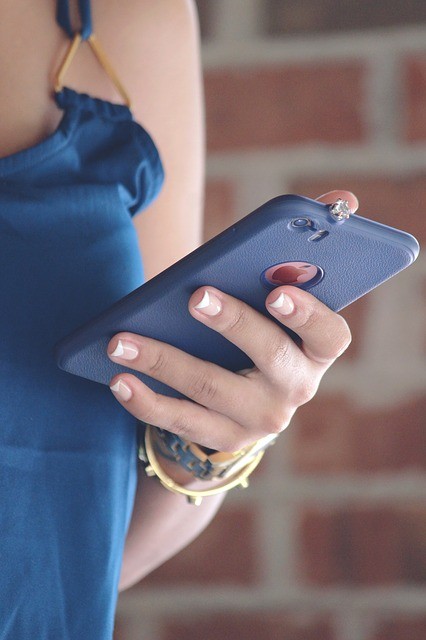DON'T TAKE IT AT FACE VALUE

By now everyone has heard that if you have an injury claim, you should lay off social media. Facebook, Twitter, Instagram and LinkedIn are verboten. But there's a big difference between what we know and what we actually do. Insurance companies and their defence lawyers know all about our human weakness and our online craving. As a Plaintiff's lawyer, it is rare to show up at a Discovery and not be asked for screen captures of my client's social media accounts. 25 year old car crash victim? Get her Instagram. 65 year old slip and fall grandmother? Get her Facebook. It's now a standard in the defence lawyer's toolbox. And when Plaintiffs' lawyers refuse, motions are brought before our Courts.
Defence lawyers want the good stuff. Their hope is after surviving a severe car crash, the nightmare of multiple broken bones, years of painful medical treatments, the end of your career, mortgage foreclosure and impending personal bankruptcy, that you're still churning out happy pics online showing how much you love life and how fab you looked last Saturday night. And yes, some injured people do just that. Given the nature of social media, it really shouldn't be that shocking. It's no head-shaker.
For most lawyers, social media is like a sloppy virtual bulletin board. If you post it, you lose it. But is it really? The truth is we've got it all wrong. Social media is not mail. It is not phone records. Social media is not even like an old-time telephone party line. Social media is plain old theatre.
What lawyers and our legal system don't grasp is just how fake most of these personal posts really are. Mining for 'truth' in social media is like panning for gold in a salt mine. Social media truth is fools gold plain and simple. Social media marketers know this oh so well. Maybe it's time that our legal system took a page from these web entrepreneurs and looked long and hard at the value of social media evidence.
Marketers know what's what. Here's what they know and what our legal system should know:
- Brag Culture: everyone likes to win. And everyone likes everyone to know they are winners. Why post you feel like heck and look worse after a week in a hospital bed? No shower, no shave, no shampoo, no deodorant and the humiliation of being hauled by an attendant to the toilet. Who wants to hear about that. And nobody ever wants to see your GoPro footage of that. No one will ever 'like' that on Facebook. And definitely not #Winning;
- Self-Fulfillment: everyone wants to feel valuable, belong to a community and share with others. For months or even years, you have nurtured your online self. Are you going to destroy that image and upset the apple cart by tweeting about how much pain you are in and how depressed you are after an hour of grueling physio? Not likely. And definitely not 'likable";
- Self-Creation: social media gives people a second chance to make themselves in their own best image. People share content to create an idealized online persona. Does sharing this tweet make you look good? Look like a real somebody someone else would like to be friends with? If you look weak, needy and high as a kite on prescription painkillers, you probably won't get 'friended' today;
- Give the World a Coke: and a smile. If you're old enough to know that phrase, you already get it. People share posts and tweets because they hope the content will improve the lives of their audience. Marketers know how important it is to create easy 'helpful' content that can be adopted, shared with thousands, and immediately make everyone's lives better. What's the chance that a car crash victim's pic of their black and blue legs will make the cut? It won't have social media legs; and
- Spreading the Good Word: people share information to boost their social causes, political beliefs and brands they love. Tweeting about our own personal pain and struggles just seems selfish and petty in the grand scheme of things. Nobody wants to be seen as a whiner. What's the social good in that? So they hide the pain.
Is this all just armchair psychology? Maybe there's a bit of pop psychology to it. But don't doubt for a minute that social media marketers have the pulse of what's really ticking. For an interesting read, check out Cole Nowicki's "Social Media and Psychology: 8 Lessons For Marketers" (HootSuite: April, 2019).
And for practical strategies of how to deal with your social media accounts when you've been injured, read Martin Law's Blog, "What Happens On Facebook Doesn't Stay On Facebook."
What's the take home skinny?
Don't take social media posts at face value. And never sacrifice our time-tested Principles of Evidence to accommodate the future. Don't forsake hard won lessons just to look modern and with it. Maintaining our Court's discretion to weigh the value and necessity of such 'evidence' is critical. Automatically allowing frilly and fake theatrical social media posts into evidence just because it's the future, strips our system of all that is good, reasoned and fair. Remembering our Principles of Evidence reminds us of that one Golden Rule: It's Still Hip to Be Square.
Lookin' Fine? Look Again
What Lawyers and Our Legal System Can Learn From Social Media Marketers

